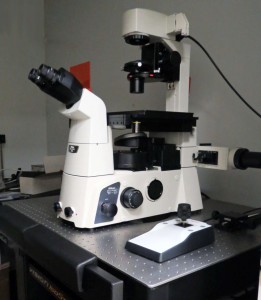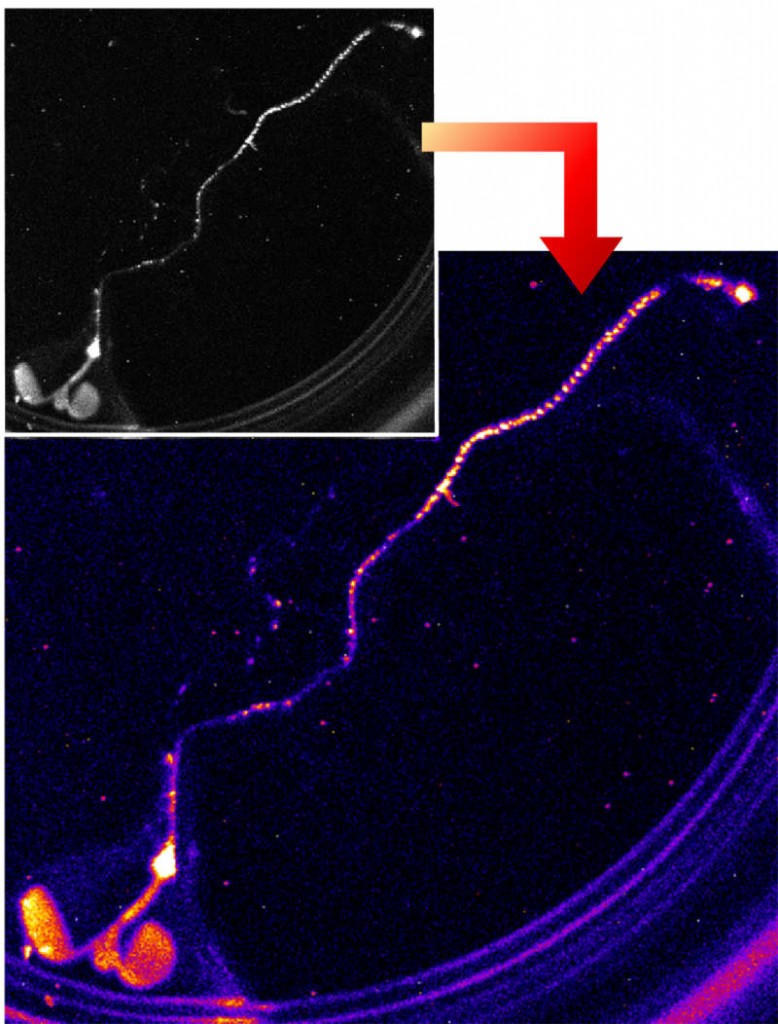 |
For detailed observation of chemical reactions within living components |

|
Bioluminescence imaging systems have been specifically designed for observing very low light levels that result (for example) from chemical or biological reactions. In contrast to other types of imaging, the sample is not illuminated but rather generates its own light: phototoxicity is therefore completely absent, and acquisition times can be long. The intensity and dynamics of the observed signals nevertheless constitute very fine indicators of chemical or biological reactions taking place within the sample. For this reason, bioluminescence is frequently used to measure and monitor calcium flux in samples at the scale of a cell, as well as of an organism. The observations take place in closets that are completely opaque to the surrounding light.

Bioluminescence of calcium signals within an A. thaliana seedling
Services:
- Macroscopic or microscopic observation
- Completely opaque closets
- Ultra-sensitive cameras
- For animals: anesthesia, electric blanket and up to 5 simultaneous subjects
Access mode:
- With assistance
- In autonomy (after training)
- As service delivery
Bioluminescence resources
Nom |
Technical characteristics |
Lieu |
| Bioluminescence HAMAMATSU | Macroscopic view | FRAIB – Campus INRA Auzeville |
| Small animal – ANDOR | Macroscopic view, regulated environment and anesthesia system | IPBS – Rangueil |
| Bioluminescence STANDFORD photonics | Inverted microscope | FRAIB – Campus INRA Auzeville |


